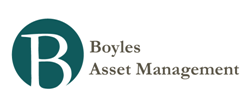How Much Should We Practice? - By Jonah Lehrer
Found via Simoleon Sense. I’ve been thinking about this topic as it relates to investing. What can one do to become an “expert” as quickly as possible? I think finding the most efficient process is at the heart of the matter, and a couple of things that help this to be reached are very good filters and checklists. Tim Ferriss has had some interesting posts relating to efficiency in other areas like language, working out, and probably several others that I haven’t gotten to yet (some of which are likely detailed in his new book).
Somewhere, right now, a little kid is fighting with his parents about how much he needs to practice the piano. Or maybe it’s the clarinet. I fought with my parents about practicing everything. I didn’t want to practice my major chords, or my tennis swing, or my multiplication tables. I insisted that I already knew how to do it – I’d just done it – so why did I need to do it again?
Well, it turns out that 10 year-old Jonah had a point. There’s a brand new paper in the Journal of Neuroscience by a team of scientists at Northwestern (first author Beverly Wright) that investigates how much deliberate practice can be replaced with periods of “additional sensory stimulation,” or passive listening.
…..
Obviously, these results have big implications. We spend a lot of time trying to improve our perceptions on very particular tasks, whether it’s a jet fighter pilot learning how to fly or a baseball player learning to hit a fastball or child with dyslexia learning how to read. Although we currently assume that the only way to improve is to constantly practice – in technical speak, the act of practicing provides a “permissive signal” that allows the accompanying stimulation to “drive learning” – this research demonstrates that we can also improve through mere exposure. Furthermore, our obsession with practice comes with serious drawbacks, since the tedium of practice can prove discouraging for beginners. And so we quit the piano and give up on our reading lessons, because we can’t stand the training regimen.
This doesn’t mean, of course, that we can just play Yo Yo Ma in the background and expect to master the cello, or put the textbook underneath the pillow and expect to ace the algebra test. We still need to practice. We just might not need to practice as much as we think.
- Charlie Munger On Practice Evolution
From Whitney Tilson's 2000 Wesco Annual Meeting Notes:Practice Evolution "This is really important. For example, Hertz and Enterprise Rent-a-Car through practice evolution have developed personnel systems, etc. that work for them. They are...
- How Do You Get To Carnegie Hall? Talent
Link to article: How Do You Get to Carnegie Hall? Talent The 8-year-old juggling a soccer ball and the 48-year-old jogging by, with Japanese lessons ringing from her earbuds, have something fundamental in common: At some level, both are wondering whether...
- A Conversation With Kevin Kelly
Link to video and excerpts: The Technium: A Conversation with Kevin KellyIntroduction - by John Brockman A few weeks ago David Carr profiled Kevin Kelly on page 1 of the New York Times Business section. He said Kelly's pronouncements were “often...
- The Power Of Habit Investments – By Leo Babauta
I’ve come to believe that two major forces can greatly improve processes for doing all kinds of things: HABITS and CHECKLISTS. The article linked to below discusses a little about the habit side of things, and there are two good books that can give...
- Deliberate Practice: Becoming A Better Investor
Tariq at the Street Capitalist blog had a great post on a frequent topic on this blog: deliberate practice. He had some great thoughts on applying deliberate practice to investing, which are pasted below. I gave a presentation on this topic last March....

